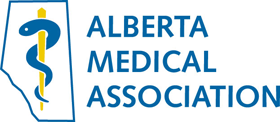Vitamin B12 deficiency and metformin
May 12, 2022

 Contributed by:
Contributed by:
Liana Hwang, MD CCFP(OSS), DTM&H
Click for bio
Case
Ms. Haile is a 78-year-old woman presenting with mild fatigue and "brain fog" of three months' duration. She has a history of type 2 diabetes and hypothyroidism. She currently takes metformin 1,000 mg twice daily, and Synthroid 112 mcg daily. She denies any paresthesias, heartburn or change in bowel habit. She reports an adequate diet covering all of the food groups.
Issue
Vitamin B12 deficiency may be easily overlooked as it can present with a wide range of non-specific symptoms. A number of conditions and medications increase the risk of vitamin B12 deficiency and periodic screening in some individuals should be considered.
Background
Vitamin B12 is required for hematopoiesis, DNA synthesis and neurologic functioning.1 It is naturally found in animal products and deficiencies in B12 are often due to malabsorption, i.e., pernicious anemia or a strict vegan diet.1,2 The prevalence of B12 deficiency in Canada is estimated to be 4.6%.3
Evidence
B12 deficiency may present with vague symptoms such as fatigue, weakness, difficulty concentrating and irritability. It can come on slowly, causing symptoms to appear gradually and intensify over time. It can also present with variable neurologic symptoms like paresthesias and peripheral neuropathy, which may be irreversible. Additionally, it can cause a swollen, inflamed tongue that looks smooth on examination. Megaloblastic anemia may be seen on bloodwork and folate deficiency should be ruled out.1 Adults require 2.4 mcg/day. Animal sources include dairy products, eggs, fish, meat and poultry. Other sources include B12 fortified grains.
A number of conditions can interfere with B12 absorption and lead to B12 deficiency. Pernicious anemia is an autoimmune condition where antibodies directed against gastric parietal cells and/or intrinsic factor decrease B12 absorption. The Schilling test has been superseded by testing for anti-IF and anti-parietal cell antibodies. Lifelong treatment with B12 is indicated in cases of pernicious anemia and screening endoscopy for gastric cancer is recommended.4
Other conditions which can affect B12 absorption include infection with Giardia and other intestinal parasites such as Diphyllobothrium latum (fish tapeworm), H pylori infection, celiac disease and inflammatory bowel disease, and history of bariatric or gastric/intestinal surgery.5 Immune system disorders such as Graves’ and lupus are associated with B12 deficiency. Finally, a number of medications can affect absorption of B12. A systematic review and meta-analysis suggests that metformin is associated with lower levels of B12.6 Similarly, prolonged use of histamine H2 blockers and proton pump inhibitors is associated with B12 deficiency.5
Inadequate intake of B12 is less common but can be seen in patients following a strict vegan diet, in cases of alcohol abuse and in patients over the age of 75.5 It has been seen in those on a “tea and toast diet.”
Testing B12 levels in the absence of the risk factors detailed above or in patients without neurologic symptoms or characteristic lab findings is not recommended. Routine screening in average risk individuals is not indicated.
B12 deficiency is diagnosed by checking serum vitamin B12 levels, although there are several caveats. Different laboratories may have different reference value, and serum B12 levels reflect total rather than metabolically active B12 in tissue stores. In a patient with clinical symptoms without another explanation and borderline normal B12 levels, testing MMA levels may be helpful as both would be expected to be elevated in B12 deficiency.5 It is common practice to treat those with a borderline B12 level 200-250 and symptoms of cognitive decline.
Treatment with oral vitamin B12 is convenient, effective and safe for most patients in the absence of neurologic findings, severe anemia or inability/unwillingness to take regular oral supplements. In patients with concomitant folate deficiency, vitamin B12 should be repleted first in order to avoid subacute combined degeneration of the spinal cord.5 IM B12 should be reserved for those unresponsive to oral replacement or with significant anemia or symptoms at presentation.
Recommendation
Ms. Haile is assessed, and her lab work reveals mild megaloblastic anemia with normal folate level and decreased serum vitamin B12 level. Her TSH was normal. Anti-IF and anti-parietal cell antibodies are negative. She receives 1,000 mcg of oral B12 daily. Her symptoms improve over the following weeks and follow up bloodwork after four months indicates that her B12 levels have returned to the normal range.
References
- Stabler SP. Vitamin B12 deficiency. New England Journal of Medicine. 2013;368(2):149-60.
- Stabler SP, Allen RH. Vitamin B12 deficiency as a worldwide problem. Annu Rev Nutr. 2004;24:299-326.
- MacFarlane AJ, Greene-Finestone LS, Shi Y. Vitamin B-12 and homocysteine status in a folate-replete population: results from the Canadian Health Measures Survey. The American journal of clinical nutrition. 2011;94(4):1079-87.
- Rodriguez NM, Shackelford K. Pernicious Anemia. [Updated 2021 Jul 7]. In: StatPearls [Internet]. Treasure Island (FL): StatPearls Publishing; 2022 Jan-. Available from: https://www.ncbi.nlm.nih.gov/books/NBK540989/
- Langan RC, Goodbred AJ. Vitamin B12 Deficiency: Recognition and Management. Am Fam Physician. 2017 Sep 15;96(6):384-389. PMID: 28925645.
- Chapman LE, Darling AL, Brown JE. Association between metformin and vitamin B12 deficiency in patients with type 2 diabetes: A systematic review and meta-analysis. Diabetes Metab. 2016 Nov;42(5):316-327.
